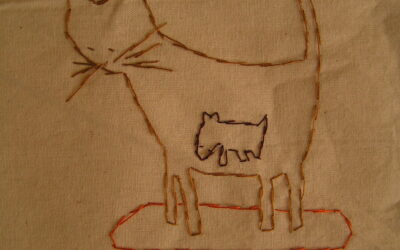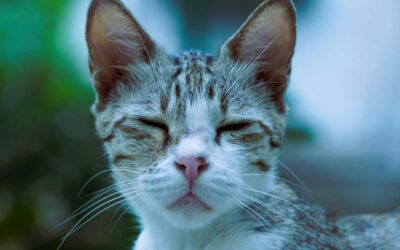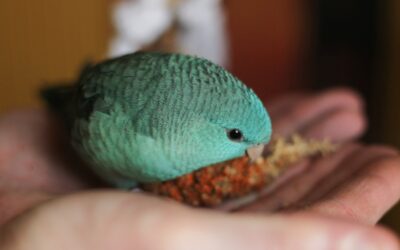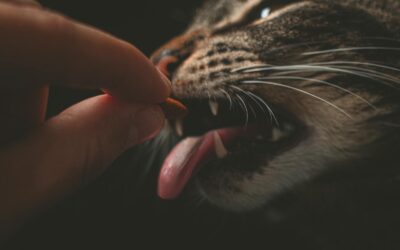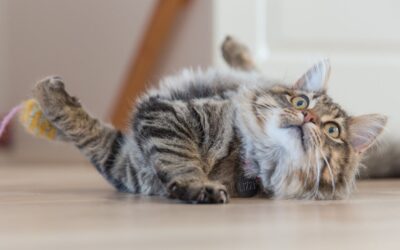Ever found yourself asking, “Why is my cat meowing so much?” Whether you’re a seasoned pet parent or a new cat owner, excessive meowing can be frustrating, confusing, or even worrisome.
Cats are naturally vocal creatures, but when their meows become constant, it could be their way of communicating something important. From kittens to senior cats, understanding why your cat is meowing excessively is the first step in addressing their needs and fostering a happier, more harmonious relationship.
This guide will help you decode your cat’s excessive meowing, understand the reasons behind it, and provide actionable solutions to ease their constant cries.

Why Do Cats Meow in the First Place?
Meowing is one of the primary ways cats communicate with their human companions. While most cats meow occasionally, some breeds, such as Siamese and other oriental breeds, are notably more vocal by nature. Adult cats generally “speak” to humans rather than to other cats, using different tones to convey distinct messages.
Reasons Cats Meow
Cats use meowing as a way to communicate with their owners and express their needs, desires, or feelings. Understanding the reasons behind their meowing can help address any underlying issues and create a harmonious environment for both you and your furry friend. Here are some common reasons why cats meow:
- Hunger or Thirst: Cats may meow to let you know they’re hungry or thirsty, especially if their mealtime is approaching or if their water bowl is empty.
- Attention-Seeking: Some cats meow to get your attention or to seek interaction. They may want to play, cuddle, or simply enjoy your company.
- Stress or Anxiety: Cats may meow excessively when they’re feeling stressed or anxious, such as during changes in their environment, the introduction of new pets, or when they’re experiencing discomfort.
- Loneliness: Cats are social animals, and they may meow when they feel lonely or bored. They may be seeking companionship or stimulation.
- Medical Issues: If your cat’s meowing behavior suddenly changes or becomes more frequent, it could be a sign of an underlying medical condition. It’s essential to consult with a veterinarian to rule out any health issues.
- Mating Behavior: Unneutered or unspayed cats may meow excessively during mating season to attract potential mates.
- Age-Related Issues: Older cats may meow more as they experience cognitive decline or develop conditions such as hearing loss or dementia.
By recognizing these various reasons for meowing, you can better understand your cat’s needs and provide the appropriate care and attention. However, if your cat’s excessive meowing becomes a persistent problem or is accompanied by other concerning symptoms, it’s advisable to consult with a veterinarian for further evaluation and guidance.

Common Reasons for Excessive Meowing
Medical Issues
One of the most crucial reasons behind constant meowing is a health problem. Cats may meow excessively when they are in pain or discomfort, suffering from numerous diseases like kidney disease, thyroid disease, or high blood pressure.
- Thyroid Disease: Cats with an overactive thyroid often exhibit increased meowing as a symptom.
- Cognitive Dysfunction: Aging cats may experience mental confusion, leading to increased meowing.
- Pain or Discomfort: If your cat stops eating dry food or feels hungry immediately after eating, they could be signaling dental pain or other issues.
Action: Schedule a thorough checkup at the veterinary hospital to rule out any underlying medical issues causing excessive vocalization.
Stress or Emotional Distress
Cats are sensitive creatures and often meow when they feel stressed or confused. Changes in their environment, such as moving houses, the introduction of other cats, or even a new pet sitter, can trigger emotional distress.
- Litter Box Issues: A dirty litter box could lead to constant meowing as your cat expresses dissatisfaction with their living conditions.
- Lack of Stimulation: Cats sitting idle for long periods may develop attention-seeking behaviors, leading to increased vocalization.
Action: Ensure your cat has a clean litter box, a stimulating environment, and plenty of interactive toys.
Hunger or Thirst
Is your cat meowing so much during meal times? Hunger and thirst are some of the most common causes of excessive meowing. If the water bowl is empty or their food bowl is late in being filled, they’ll make sure you know it.
For certain vocal breeds, like Siamese cats, this can manifest as particularly loud demands.
Action:
- Use an automatic feeder to ensure consistent mealtime schedules.
- Provide fresh water regularly and place additional water bowls around your home.
Attention-Seeking Behavior
Cats learn quickly that meowing is an effective way to get their human’s attention. This behavior is often a learned one, and if it’s rewarded (even unintentionally), they’re bound to repeat it.
Does this sound familiar?
- Your cat meows, and you immediately get up to play.
- Your cat cries near the door, and you open it right away.
Action:
- Avoid rewarding constant meowing. Wait for moments when your cat is quiet before giving them attention.
- Ensure your cat gets regular playtime to satisfy their social and physical needs.
Age-Related Changes in Senior Cats
Senior cats often experience age-related changes that lead to excessive meowing. Cognitive dysfunction, the feline version of dementia, can cause mental confusion and increased vocalization, especially at night.
- Restlessness at night.
- Increased vocalization without an obvious reason.
- Forgetting daily routines, such as using the litter box.
Action:
- Consult your veterinarian to determine whether cognitive dysfunction might be the issue.
- Create a calming nighttime routine using dim lights and gentle background noise to comfort your cat.

Heat or Reproductive Behavior
Non-spayed female cats can cry or yowl when they’re in heat, often exhibiting vocal calls to attract male cats. Similarly, intact males may also yowl when they sense females nearby.
Action:
- If your cat isn’t already spayed or neutered, consult with your vet. This simple procedure can reduce excessive meowing caused by reproductive behaviors.
Environmental Triggers
Sometimes, cats meow excessively due to triggers in their environment. A bird feeder outside the window or another cat wandering into their territory can set off a series of vocal responses.
Action:
- Close windows or curtains to eliminate external triggers if your cat gets overstimulated.
- Consider installing a cat door for independent outdoor/indoor exploration, if safe.

Serious Reasons for Excessive Meowing
While the majority of excessive meowing in cats can be attributed to attention-seeking, discomfort, or lack of stimulation, some uncommon or serious reasons may cause excessive meowing. These can include:
- Cognitive Dysfunction Syndrome: Older cats may experience cognitive dysfunction syndrome, similar to Alzheimer’s disease in humans. This condition can lead to confusion, disorientation, and increased vocalization.
- Hyperthyroidism: Hyperthyroidism is a hormonal disorder that commonly affects older cats. Besides weight loss and increased appetite, excessive meowing can also be a symptom of this condition.
- Anxiety or Stress: Cats can experience anxiety or stress due to various factors, such as changes in the environment, new additions to the household, or separation anxiety. Excessive meowing can be a manifestation of their distress.
- Painful Arthritis: Arthritis is a condition that affects the joints and can be painful for cats. They may meow excessively as a way to express their discomfort.
- Hearing Loss: Cats with hearing loss may meow excessively because they cannot hear their own voice. It could be their way of seeking reassurance or communicating their confusion.
It’s important to note that these uncommon or serious reasons for excessive meowing require proper diagnosis and treatment by a veterinarian. If you suspect any of these underlying causes or if your cat’s excessive meowing persists or worsens, it is recommended to seek professional veterinary advice for a thorough evaluation and appropriate management.
Proactive Tips to Stop Excessive Meowing
If your cat won’t stop meowing, here are some tips to address their behavior effectively:
- Understand Your Cat’s Needs: Pay attention to the timing and context of your cat’s meows. Are they near the food or water bowl? Are they seeking your presence?
- Encourage Quiet Behavior: Reward your cat with treats and affection when they’re calm and not meowing excessively.
- Provide Routine: Cats thrive on routine. Stick to a fixed schedule for feeding, playtime, and other daily activities.
- Use Enrichment: Interactive toys, scratching posts, and even puzzle feeders can help keep your cat entertained and reduce vocalization.
- Seek Professional Help: If your cat’s excessive meowing persists despite your efforts, consult with a veterinarian to rule out any health concerns or behavioral issues.

Is your cat meowing excessively because they are bored? We got you! Kate’s K9 Pet Care Services provides cat services that will sure keep your kitty entertained. Visit us today!
When to Contact a Vet
If your cat is meowing non-stop and showing signs of discomfort, changes in eating habits, or unusual behavior, it’s essential to visit a veterinary hospital. A vet can determine whether your cat’s excessive vocalization is due to physical pain, emotional stress, or a medical condition like thyroid disease or kidney disease.
Building Better Communication with Your Cat | Why Is My Cat Meowing So Much?
Cats are vocal creatures by nature, and while constant meowing may feel excessive at times, it’s often their way of telling you something important. By understanding your cat’s behavior, meeting their needs, and taking proactive steps, you can reduce unnecessary vocalization and strengthen the bond you share.
Your feline friend is counting on you to decode their language—and with a little patience, you’ll have a quieter, happier home.

